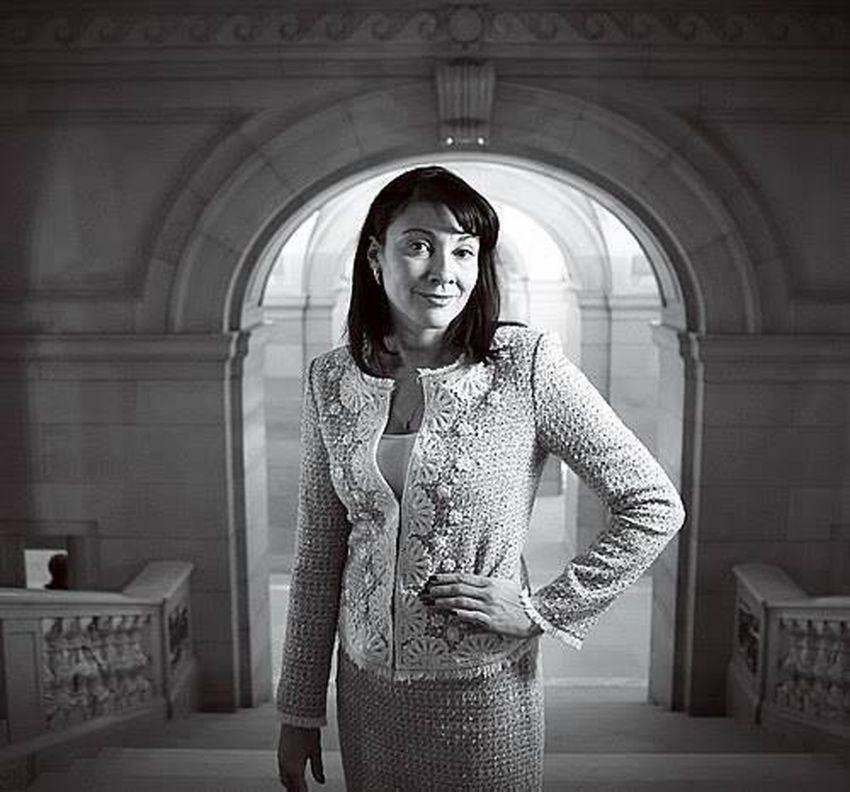Why corporate leadership on elections matters
/https://static.texastribune.org/media/files/35ecaf7d455b0288c3ae69f348bc9692/texas-tribune-airplane.png)
By Sarah Walker, Secure Democracy
Sarah Walker, executive director of Secure Democracy, is a Houston native.

When Texas employers large and small railed against proposed restrictions on the freedom to vote in the state, it rankled politicians in Austin with reverberations all the way in Washington. Why? Because politicians know just how effective corporate leadership is. That’s why it’s so important that business leaders in Texas continue to stand tall in the face of unconscionable retaliation for their workforce and for their consumers.
In recent years, the private sector has helped usher in transformational changes in our culture, forcing the law to keep up on issues as diverse as criminal justice reform, education reform, gender, racial and LGBT equality. Today, our democracy is at a similar boiling point — rendering business leaders’ calls for cooler heads to prevail absolutely essential.
Voting access is at risk for hundreds of millions of Americans — including more than 29 million Texas residents — living in states that are working to roll back our liberty. Texas is a national outlier in many areas of election law: It is one of only nine states where citizens can’t register to vote online; one of only seven states that does not accept student IDs issued by accredited colleges and universities as photo identification for voting; and it’s one of only 12 states that sets the earliest voter registration deadline allowed by federal law.
The conversation in Austin should be about modernizing Texas’s election laws, but instead, new legislation threatens to limit Texas voters’ access even further. Much has been written about the disparate impact these restrictions — centered on mail voting and early voting — could have on urban voters and people of color, but older voters, people with disabilities, veterans and Americans living in rural communities are quite reliant on these voting methods, too. In fact, our analysis of Texas Secretary of State data found that about 90% of voters aged 55 or older, veteran and active duty military voters and Republican voters all chose to vote early or by mail in the 2020 election.
The bills under consideration in Texas would create numerous new election crimes — even for caregivers helping elderly family members vote — and would inject more partisanship precisely where it doesn’t belong: at the polls.
Business leaders are speaking out to preserve voting access and keep partisan political interference out of our elections because it’s a business imperative. When our election system works for everyone, we all benefit. So does our economy. When voting access is curtailed, state economies suffer.
Nearly 90% of consumers worldwide expect CEOs to speak out on important social issues, according to Edelman’s 2021 Trust Barometer. A recent poll from the Civic Responsibility Project found that 82% of Americans would feel more favorable towards a company that supports policies to make it easier for Americans to vote and register to vote, including more than seven of ten Republicans and nine of ten Democrats.
And it’s not just consumers who are looking for corporate action; a recent Garner study found that three-quarters of employees expect their employer to take a stance on current societal or cultural issues. Sixty-eight percent would consider moving to companies that take stronger stances on issues than their current company does.
What’s good for business is good for democracy. To see private-sector leaders call for an election system that balances integrity with voter liberty should be celebrated — not demonized. Their leadership will help ensure that our democracy — and our economy — continues to be a beacon for the entire world.
Legislative advertising paid for by Secure Democracy and contracted for by Sarah Walker, 611 Pennsylvania Ave Suite 143, Washington DC 20003.